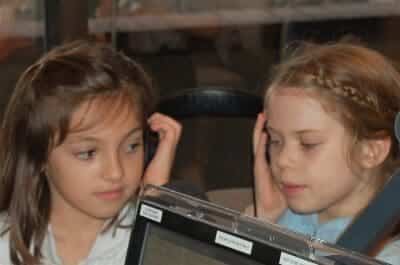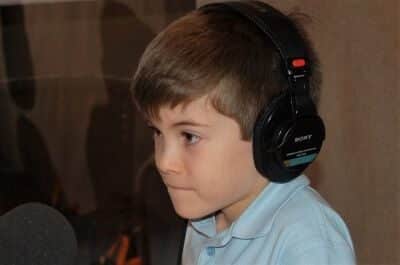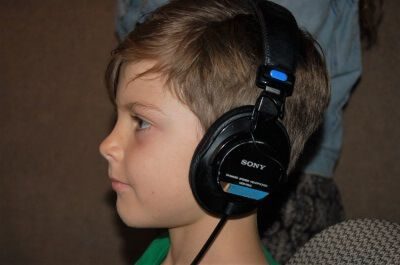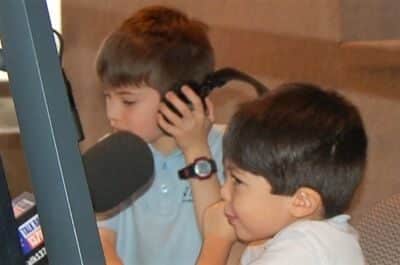Episode 34 | February 12, 2019
In this special episode, our panel of experts on the next generation, five kids ranging in age from four to nine years old, predict the future and discuss ideas for making electricity, water, and transportation more sustainable. These leaders of tomorrow share their thoughts about solar power, water conservation, electric vehicles, and robots.
Meet the Future
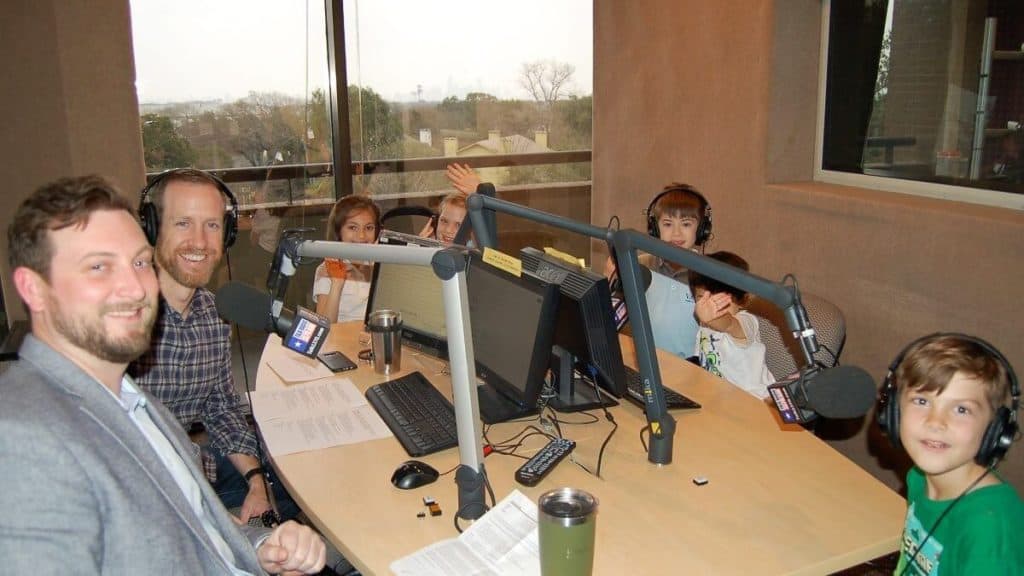
At the Texas Energy Lab, our hosts normally interview business and community leaders. On this special episode of the show, hosts Kyle Frazier and Tim Duffy interview the leaders of tomorrow. Our panel of experts represent the voices of the next generation, and we ask them about sustainability issues ranging from electricity to water to transportation.
Kyle kicks things off by defining sustainability as “the impact that we have on the earth or what we leave for future generations,” noting that the stakes in the sustainability game are highest for our children. Then we turn it over to our panel:
- Sierra, age 9, who wants to be a veterinarian someday
- Nimue, 9, a future meter maid
- Reed, 6, an aspiring engineer
- Weston, 4, a future scientist
- Preston, 9, who wants to sell solar panels when he grows up
Sustainability Q&A
Q: Where does electricity come from?
A: The kids note that electricity sources can include the sun, wind, or power plants that burn coal and are not really a clean way to make power. In a nod to alternative energy sources, Sierra says that her gerbils – besides sleeping, eating, and pooping – spend a lot of time running on their wheel, which creates kinetic energy. “All of that is real,” confirms Weston.
Q: Why is electricity important?
A: It can power our cars, gives us light, and can charge our electronics.
Q: Why do we turn off the water when we brush our teeth?
A: So that the water bill costs less money. Before we had water from the faucet, people had to pull water from underground wells, which required a lot of energy.
Q: Where does water come from?
A: Sierra summarizes the water cycle: “It evaporates and forms into clouds, and then when the clouds get too heavy it rains, and the water comes back into lakes and it evaporates.”
Q. What form of transportation do you like to use to get around today?
A. The general consensus is that bicycles are the preferred mode of transportation, with riding in their parents’ cars (including Preston in his dad’s hybrid minivan) as the second choice.
Q. How will people get around in the future?
A. The kids’ vision of transportation in 10 years were creative and varied, ranging from Nimue who thinks we’ll be driving the same cars as now to Reed’s idea of hydro-powered cars. Sierra foresees self-driving autonomous cars, and Preston thinks that everyone will be in electric cars, possibly even electric hovercraft cars. Nimue thinks we’ll still be in the same cars 100 years from now, while Reed suggests that flying cars may finally be a reality.
Q. What would you change if you were president today?
A. The answers ranged from reducing trash in the ocean, as Reed suggested, to water efficiency measures for toilets and showers.
Q. What will robots do for us in the future?
A. The kids foresee that robots will someday drive us around, help with recycling, and give us food. Kyle mentions that 3D printers for food are already in development for the military. Nimue and Sierra are AI optimists who believes that the robots will assist humans rather than taking our jobs, for example acting as a doctor’s helper.
Q. What is the coolest invention right now?
A. Electronics are the clear favorite, including robots, TV, phones, computers, iPads, Nintendo Switch, X-box, Wii U, and Playstation PS4.
Q. What is one thing you will commit to personally doing for the earth?
A. Preston: “to have everything run on electricity” and to make the electricity from “all solar panels”
Weston: turn the water off while brushing his teeth
Reed: flush the toilet less often
Nimue: walk instead of drive
Sierra: take 6-minute instead of 10-minute showers
